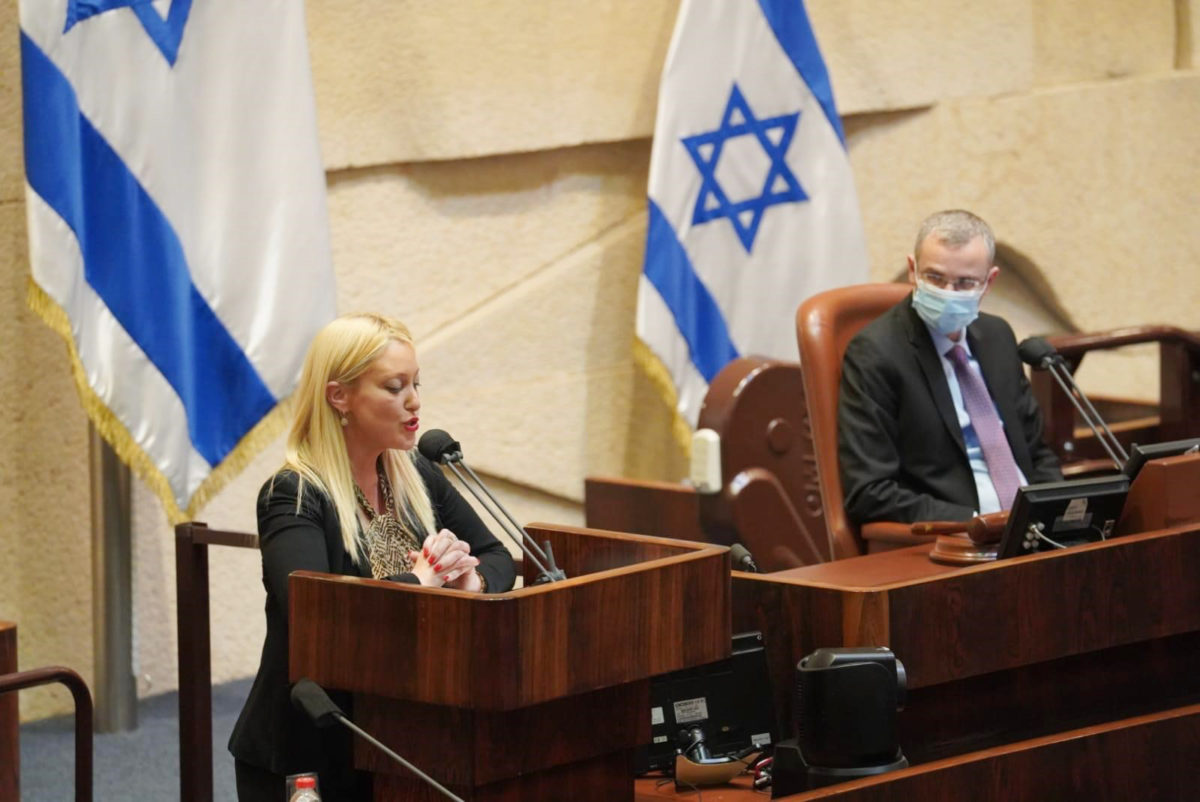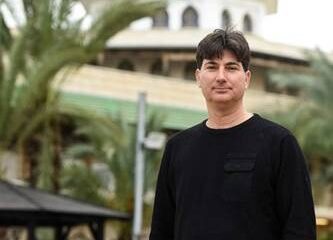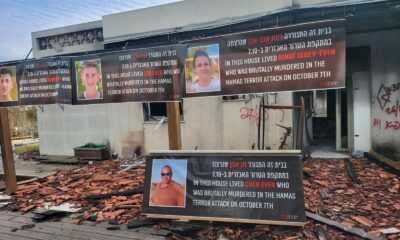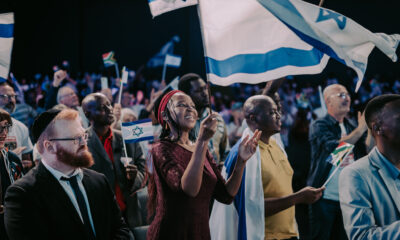
Featured Item

From Cape Town to Cairo to the Knesset…briefly
Published
3 years agoon
As Ruth Wasserman Lande was sworn in as Israel’s newest member of the Knesset (MK) on Monday 11 January, it was the culmination of a long journey from growing up in Cape Town, where she attended Herzlia School.
However, just 48 hours after being sworn in, she was forced out of the role when former science and technology minister Izhar Shay of the Telem party returned to the Knesset as part of the so-called Norwegian Law, according to the Jerusalem Post. She said that while she was extremely disappointed, “there is certainly more than a chance” that she would be back in the Knesset at some point.
She has served as an advisor to late Israeli President Shimon Peres, been a deputy ambassador at the Israeli Embassy in Cairo, and the deputy director-general for international affairs at the Israeli Federation of Local Authorities, but in her inaugural address, she looked back on her formative years as a vital part of what brought her to that point.
Born in Israel, she came to South Africa when she was eight years old, and made aliyah at the age of 17. “Growing up in Ashdod, I played with children of all backgrounds. So it was strange when I came to South Africa and saw children playing separately under apartheid. It definitely had an impact on my identity.”
In addition, her education at Herzlia was an important part of her becoming the diplomat she is today. “Herzlia is an amazing institution, value-orientation is a characteristic of the school. It definitely influenced me, as did the Jewish community in Cape Town in general. It made me realise the importance of having a viable Jewish community in the diaspora, which I feel is key to the continuation and resilience of Jewish peoplehood.”
“I joined the Blue and White party at the request of its chairperson, Benny Gantz, particularly on the basis of its inclusion of Israeli minorities, particularly Arab minorities. This connects to the work I have been doing for the past two decades, which is to integrate all citizens into mainstream Israeli society,” she explains.
Looking back, she describes how, straight after her training as a diplomat, she asked to serve in Cairo. “My superiors were surprised, but I felt there was no better way to serve my country than to represent Israel in Egypt, which has a very important peace agreement with Israel but no normalisation between people. As a young, Jewish, Ashkenazi woman, I felt I could help in that context.”
In preparation, she spent eight hours a day learning Arabic with two private teachers, and she still speaks it fluently today. As MK, she hoped to focus on “the greatest issues in the Arab sector: a tremendous rise in violence and crime. It requires multiple ministerial attention. Police, legislation, an education – formal and informal. There has been much research, but now it needs to be implemented and budgeted. It’s a huge problem that I’m passionate about. As a small country, it affects Israel’s internal dynamics. Integration of minorities and strengthening people-to-people relationships is a vital part of it. This is my passion, and I will continue to work towards it.”
This work extends to engaging intensively with Israel’s minorities as a way to make it a more integrated society. “To my mind, the picture is clear: 22% of Israel’s population isn’t Jewish. They are citizens, and we need to aspire to the concept of tikkun olam, respect for the other. Working towards cohesion will make our country more viable, more progressive, more successful, and more prosperous. It’s not easy and not clear cut, but it needs to be done to make Israel even better than it already is.”
Regarding the Israeli-Palestinian conflict, she feels that peace is crucial for Israel’s well-being. “Ramban would say we need to make peace not only with our neighbours, but with ourselves. Rashi would say without peace, there is nothing. We don’t need to be naïve, close our eyes, or turn our backs. But we need to leave no stone unturned to try to make it happen. This isn’t out of naivety. It’s challenging, without a doubt. But look, we didn’t believe in the possibility of something like the Abraham Accords two or three years ago. We thought it was a naïve dream. And now here we are. It’s astounding.”
She is at almost at a loss for words at how excited she is about the Accords. “It’s amazing and hugely strategically important. It’s like the Berlin Wall has fallen, and now even more countries will follow.”
She has already travelled to the United Arab Emirates (UAE), where she celebrated the agreement on the rooftop of the Emirates Towers Hotel in Dubai. “Shiri Maimon’s beautiful voice singing Hallelujah in Hebrew on this rooftop is the epitome of this burgeoning peace,” she wrote on Facebook. She also attended the Gitex Conference in Dubai, which she says was “an amazing platform for co-operation, innovation, and technology”, and met the Canadian ambassador to the UAE, Marcy Grossman.
Writing about her time in Dubai on Facebook, she described how she “experienced, breathed, smelled, and tasted from the scents and flavours of the magical desert and Gulf. More than anything, I was enthralled with every meeting with people from different nationalities with whom we, as Israelis, had almost no contact in the past. The complete security I felt while walking its streets was remarkable.
“Flying over Saudi Arabia, my heart stopped as I saw that our Israeli aircraft was permitted entry into Saudi airspace … astounding! Meeting journalists, investors, businesspeople, and entrepreneurs – both Emirati and foreign – was a truly unforgettable learning experience for me.”
While she served as advisor to late Israeli President Shimon Peres, she emphasises that, “Peres was actually my advisor in all respects! I learnt so much from him. He taught himself languages and had huge knowledge. He was a remarkable leader and visionary.”
She believes Israel is “the sanctuary of the Jewish people throughout the world”, but she also emphasises the importance of a strong diaspora. To the South African Jewish community, she says, “Be strong and resilient. You have a very important role to play in the continuation of the Jewish people. I am very proud to come from such a community.”










